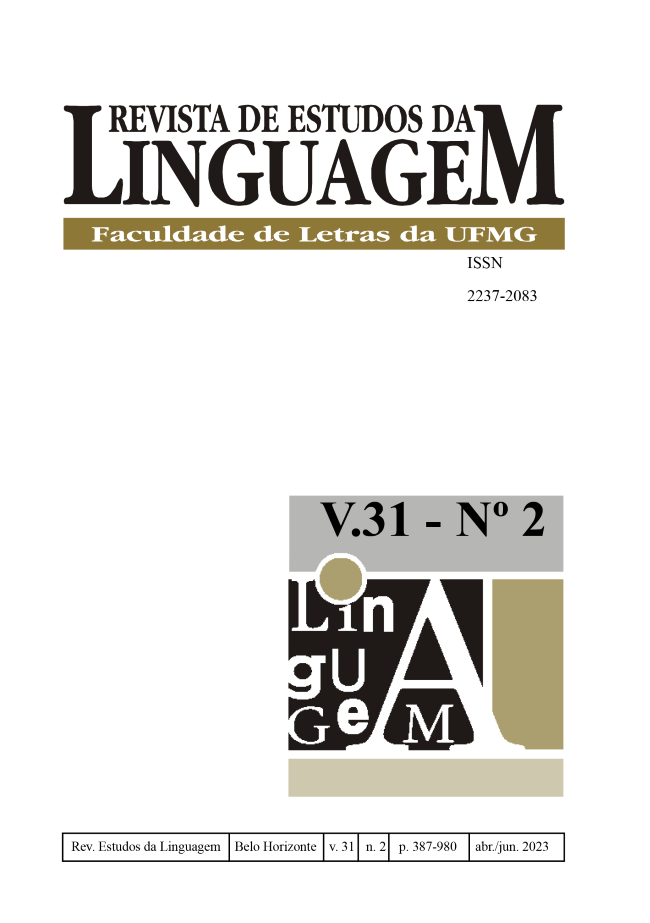Clues of sociolinguistic awareness in the use of profanity profanity in a literary work
DOI:
https://doi.org/10.17851/2237-2083.31.2.861-904Keywords:
sociolinguistics, literary text, linguistic monitoringAbstract
Swear words are subject to strong social stigma. Speakers monitor their linguistic uses depending on their interlocutor (BELL, 1984), and by observing the linguistic monitoring of the same speaker in two different situations, we can access his/her sociolinguistic awareness. This study is qualitative and quantitative in nature and observes the use of profanity to build social personas in two versions of the same book. We compared the frequency of profanity in a handwritten version and in the published version of Feijão de Cego, by Vladimir Carvalho, and analyzed the metalinguistic comments present in the characters’ speech. The results show the sociolinguistic awareness of the author, who portrays, in the dialogues of his characters, evaluative judgments of stigma about the use of profanity. On the other hand, linguistic monitoring stands out through the significant reduction and/or removal of profanity in the published version of the work, in which swearwords are replaced with less stigmatized lexias. Thus, we found that the effects of linguistic monitoring can be observed not only in oral corpora, but also in literary texts, in which there is a tendency towards linguistic politeness, in order to get closer to its interlocutor (the reader public).




 Esta obra está licenciada com uma Licença
Esta obra está licenciada com uma Licença 